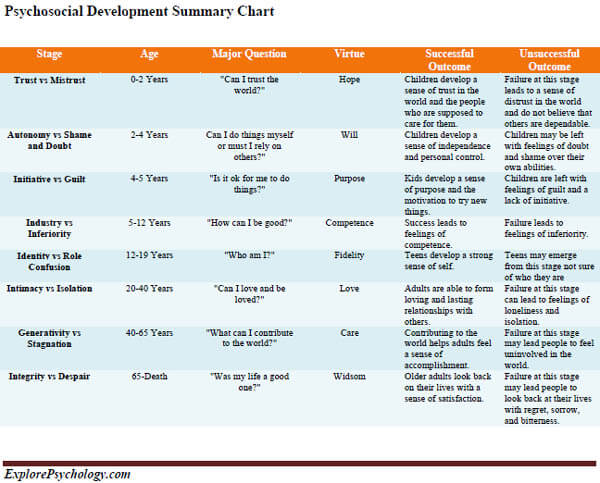What It Means to Have an Analytical Personality
Learn how an analytical personality approaches problem-solving with logic and critical thinking.

Having an analytical personality means you excel at breaking down complex problems using logic and thoroughness. You prefer making decisions based on data and facts rather than gut feelings. People with this trait are organized, precise, and set high standards for accuracy. They’re also good at noticing patterns, creating detailed plans, and are methodical in their thinking.
While analytical thinkers rely on systematic approaches, they balance this with a mix of intuitiveness when necessary. Collaborating with them means offering clear, data-backed information and understanding their preference for logical reasoning. Continue reading to learn more about how this personality type performs in different situations, including their challenges and weaknesses.
Key Takeaways
- Analytical personalities prioritize organization, logic, and thoroughness in their approach to problems and decisions.
- They excel in making decisions based on factual data and evidence rather than intuition or gut feelings.
- Analytical individuals are methodical thinkers who break down complex problems into manageable parts.
- They set high standards for accuracy and precision, ensuring detailed and reliable analysis.
- Clear, concise communication and well-organized information are essential when collaborating with analytical thinkers.
Understanding Analytical Personality
To understand an analytical personality, you need to recognize their deep appreciation for organization, logic, and thoroughness in every task they undertake. Analytical personality types are deep thinkers who approach problems methodically and carefully. They excel at decision-making because they rely on facts and data, ensuring well-informed choices.
When comparing intuitive vs. analytical individuals, you’ll notice that analytical types prefer evidence-based conclusions over gut feelings.
Reading people with analytical personalities involves understanding their need for clear communication and structured environments. These individuals often set high standards for themselves and others, valuing accuracy and detailed work. They aren’t quick to make decisions without first gathering substantial information and considering all possible outcomes.
Analytical personalities are meticulous in their approach, often breaking down complex issues into manageable parts. They thrive on solving problems that require extensive research and thoughtful analysis. While this can sometimes lead to indecisiveness due to their desire for thoroughness, it also means their decisions are well-reasoned and reliable.
Key Traits of People With an Analytical Personality
People with an analytical personality tend to have the following traits:
- Detail-oriented
- Logical thinker
- Data-driven decision-maker
- Enjoys problem-solving
- Strong critical thinking skills
- Methodical approach
- Organized and structured
- Prefers objective over subjective information
- Skeptical of unverified claims
- Excellent at identifying patterns and trends
Analytical thinkers excel at breaking down complex problems into logical, manageable parts. They thrive on their ability to dissect issues, allowing them to understand the root of any problem thoroughly. Unlike an intuitive personality type, which might rely on gut feelings, analytical thinkers base their decision-making processes on facts and data. Their systematic method guarantees that every detail is considered, which helps reduce the risk of mistakes.
One of the key individual characteristics of analytical thinkers is their focus on precision and perfection. They place a high value on clear communication, ensuring that their ideas and solutions are well-understood. This meticulous nature can sometimes lead to indecisiveness, as they often require extensive time for research and analysis before making decisions.
Analytical thinkers often find themselves balancing between intuitive and analytical methods. While they naturally lean towards logic, they can appreciate the insights that an intuitive personality type might offer. This blend can enhance their problem-solving abilities as they integrate diverse perspectives.
In decision-making processes, analytical thinkers are methodical and thorough, making them reliable in situations that demand critical thinking and detailed analysis. Their structured approach and attention to detail make them invaluable in various fields.
Analytical Vs. Intuitive Personalities
While analytical thinkers rely heavily on data and structured approaches, intuitive personalities often make decisions based on gut feelings and instincts. Analytical minds focus on gathering facts, analyzing data, and using logical reasoning to solve problems.
They excel at spotting patterns, organizing information, and creating detailed plans. Their systematic approach guarantees thoroughness and accuracy, but it can sometimes lead to indecisiveness due to over-analysis.
On the other hand, intuitive thinkers rely on their ability to pick up on cues and read between the lines. They often trust their instincts and make decisions quickly. Intuitive traits include a strong sense of empathy, creativity, and the ability to see the bigger picture without needing all the details. Intuitive thinkers are adept at making connections and generating innovative ideas.
Both personality types have their strengths and weaknesses. While analytical minds are excellent at detailed research and problem-solving, intuitive thinkers bring creativity and a holistic perspective to the table.
Understanding these differences can help you recognize and value diverse approaches in decision-making and problem-solving, enhancing both personal growth and collaborative efforts.
Working With Analytical Individuals
When collaborating with analytical individuals, offering well-organized information supported by data and evidence is crucial. They base their decisions and judgments on concrete facts, so your information should be detailed and precise.
Analytical people appreciate when you delve deep into the subject matter. They value thoroughness and clarity, which helps them feel confident in their choices.
When you give feedback to analytical individuals, make sure it focuses on tasks and is clear. They often have high standards for their work and appreciate constructive criticism that aligns with these standards. Be specific about what needs improvement and how it can be achieved. This approach helps them understand exactly what’s expected and how they can meet those expectations.
Working with analytical personalities also means being patient and understanding their preference for a systematic approach. They prefer to take their time to delve deep into tasks, ensuring everything is perfect before moving on.
By recognizing and respecting these traits, you can create a more productive and harmonious working environment. Remember, the key is to provide the right type of information and feedback to support their analytical nature.
Enhancing Communication With Analytical Types
Effective communication with analytical types hinges on presenting clear, concise information supported by logical reasoning and factual evidence. Analytical personalities value structured communication that helps them understand complex issues efficiently.
To engage these thinkers, focus on providing detailed explanations with relevant facts and logical arguments. When speaking with analytical individuals, be direct and to the point. Avoid emotional appeals and instead rely on data and rational arguments. These thinkers are intuitive and often pick up on cues that subconsciously influence their perception of the information.
To make sure, ensure your facts are well-organized and your reasoning is sound. Patience is key. Analytical types may ask specific ‘how’ questions as they seek to understand every aspect of a topic. Be prepared to provide thorough answers and evidence to support your points.
Feedback should be constructive, focusing on task improvement, and backed by concrete examples or data.
Ideal Careers for Analytical Minds
People with analytical personalities excel in careers that require problem-solving, critical thinking, and attention to detail. Here are some careers well-suited for analytical individuals:
- Data Scientist: Analyzing complex data sets to identify trends, patterns, and insights.
- Financial Analyst: Assessing financial data to help businesses make investment decisions.
- Software Developer: Writing and testing code to create software applications.
- Statistician: Using statistical methods to collect, analyze, and interpret data.
- Engineer: Applying scientific and mathematical principles to solve technical problems in various fields such as civil, mechanical, or electrical engineering.
- Actuary: Analyzing financial risks using mathematics, statistics, and financial theory.
- Market Research Analyst: Studying market conditions to help businesses understand potential sales of a product or service.
- Operations Research Analyst: Using advanced mathematical methods to help organizations solve problems and make better decisions.
- Pharmacist: Compounding and dispensing medications, and advising on their proper use.
- Quantitative Analyst: Developing mathematical models to guide financial and investment decisions.
- Research Scientist: Conducting experiments and analyzing results to advance knowledge in fields such as biology, chemistry, or physics.
- Cybersecurity Analyst: Protecting an organization’s computer systems and networks from cyber threats.
- Economist: Studying how resources are used and distributed to make economic forecasts and policy recommendations.
- Clinical Laboratory Technician: Performing tests to analyze body fluids, tissues, and other substances.
- Urban Planner: Developing plans and programs for land use in urban areas.
- Business Analyst: Analyzing business needs and identifying solutions to improve processes and systems.
- Quality Control Analyst: Ensuring products meet quality standards through testing and inspection.
If you tend to look at problems from multiple angles and enjoy making quick decisions, you might excel in roles like data analysis or financial planning. These positions require a better understanding of numbers and trends, which is perfect if you’re detail-oriented and systematic.
Engineering and programming are two different but equally suitable fields for analytical personalities. Both demand a logical approach to complex challenges and the ability to troubleshoot issues effectively. In these roles, you’ll often find yourself making data-driven decisions, which can be incredibly satisfying, especially if they’re based on thorough research and analysis.
Research roles, whether in scientific labs or market research firms, are also ideal. These positions require meticulous attention to detail and the ability to interpret data accurately.
Quality assurance positions are another great fit, as they involve ensuring products meet certain standards, requiring a keen eye for detail and systematic problem-solving skills.
Summary
Having an analytical personality means you excel at tackling problems methodically and logically. You thrive on routines and love digging into details to find solutions. Understanding your strengths can help you choose careers that suit your skills, like data analysis or engineering.
When working with or communicating with analytical individuals, remember they value evidence and clear information. Embracing these traits can lead to success in many fields that require critical thinking and meticulous analysis.
Related reading:
- Strong-Willed Personality Traits
- Negative Personality Traits
- Neutral Personality Traits
- Reserved Personality Type
Sources:
Bucher, M. A., Suzuki, T., & Samuel, D. B. (2019). A meta-analytic review of personality traits and their associations with mental health treatment outcomes. Clinical Psychology Review, 70, 51–63. https://doi.org/10.1016/j.cpr.2019.04.002
Graham, E. K., Weston, S. J., Gerstorf, D., Yoneda, T. B., Booth, T., Beam, C. R., Petkus, A. J., Drewelies, J., Hall, A. N., Bastarache, E. D., Estabrook, R., Katz, M. J., Turiano, N. A., Lindenberger, U., Smith, J., Wagner, G. G., Pedersen, N. L., Allemand, M., Spiro, A., 3rd, Deeg, D. J. H., … Mroczek, D. K. (2020). Trajectories of Big Five personality traits: A coordinated analysis of 16 longitudinal samples. European Journal of Personality, 34(3), 301–321. https://doi.org/10.1002/per.2259





